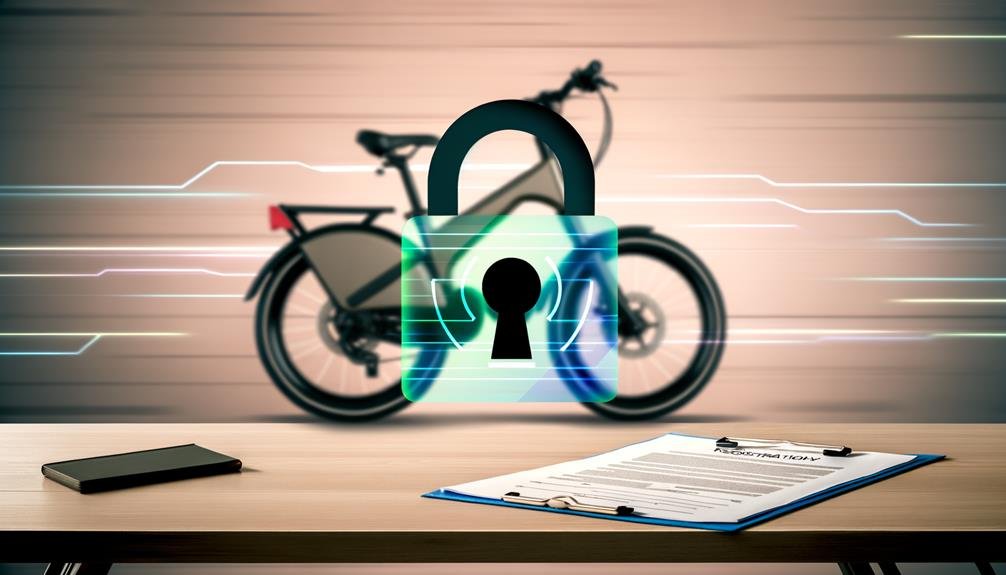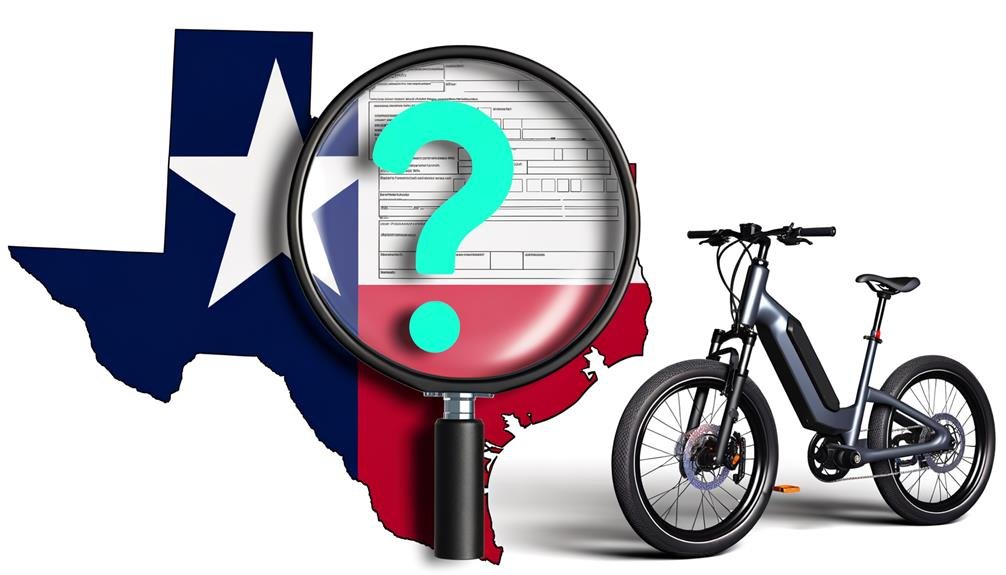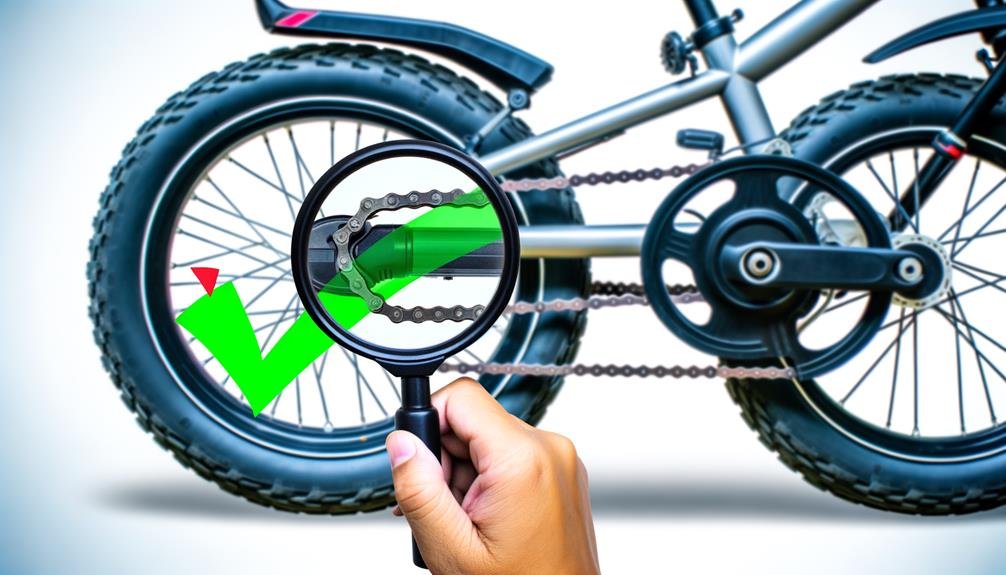Charles Miller is a veteran bike enthusiast with over 12 years of experience dealing with bikes as a mechanic. Despite immense love and expertise for...
Biking, particularly with electric bikes, has become a popular and practical mode of transportation for many. But a burning question that often buzzes in the back of my mind is: do electric bikes need registration?
This query may seem straightforward, yet the answer is far from simple, and it largely depends on local laws and regulations. Thus, let's buckle up and navigate the nooks and crannies of this topic together, for there's more to it than you might initially imagine.
- Key Takeaways
- Understanding Electric Bike Classifications
- State-by-State Registration Rules
- E-Bike Registration for Security Purposes
- Using Bike Index for Ebike Registration
- The Process of Registering Your Ebike
- Electric Bike Laws in Texas
- Age Restrictions for Ebike Use
- Helmet Laws for Ebike Riders
- E-Bike Road Rules and Restrictions
- Frequently Asked Questions
- Conclusion
Key Takeaways
- Class 1, 2, and 3 eBikes in Texas do not require registration for road use.
- Unclassified eBikes that exceed 28 mph may require registration.
- Registering your eBike enhances its security and protects your investment.
- Registration promotes responsible eBike use and accountability.
Understanding Electric Bike Classifications
To navigate the world of electric bikes in Texas, it's crucial to understand the three classifications: Class 1, 2, and 3, which are based on motor assistance and speed limits. This understanding of eBike classifications can seem daunting initially, but it's quite straightforward once you get the hang of it.
Class 1 type of ebike provides motor assistance only when you're pedaling, and it won't take you over 20 mph. It's like having a friendly tailwind always at your back.
Then there's Class 2. This bike does all the work for you, propelling you forward without any pedaling required and won't exceed 20 mph. It's like having a tireless horse underneath you.
Last, but certainly not least, is the Class 3 eBike. This bike is your personal pace setter, providing motor assistance while you pedal and can reach speeds up to 28 mph. It's your personal trainer, pushing you to go that extra mile.
In Texas, these three types of eBikes are allowed on the road without any registration requirements. However, for bikes that aren't classified and can exceed 28 mph, you might need to register them. It's all part of our journey in understanding electric bike classifications.
State-by-State Registration Rules
Diving into the state-by-state registration rules, you'll find that in Texas, there's no need to register your Class 1, 2, or 3 electric bike for road use. This is a relief for our e-bike community, knowing that we can simply hop on and ride without the paperwork hassle.
This eases the process for us. However, it's important to remember that local laws and e-bike laws may be different in other states. So, if you're planning a cross-country tour or moving, you may need to register your electric bike elsewhere.
Let's look at the rules in Texas in a simple table format to make it easier to digest:
| Age Restriction | Requirement |
|---|---|
| Under 15 years | Cannot operate Class 3 electric bikes |
| Under 18 years | Must wear helmets |
| Motor Power | Usage |
| Less than 750w | No specific restrictions on throttle |
Just remember, we're all part of this growing e-bike family. Make sure to uphold these rules and respect your fellow riders. This way, we can foster a sense of belonging while enjoying our shared passion.
E-Bike Registration for Security Purposes

Let's now turn our attention to e-bike registration for security purposes.
We'll first explore why registering your e-bike is important.
Then, we'll move on to simplify the registration process.
This will underscore how registration not only enhances the security of your e-bike but also gives you peace of mind.
Importance of E-Bike Registration
Understanding the importance of registering your electric bike can significantly enhance your bike's security and protect your investment. Here's why you need to register your eBike:
- Licensing and Registration: Depending on eBike classes, local authorities may have registration requirements. They often use this data to track and recover stolen bikes.
- Manufacturer's Warranty: Registration with the manufacturer validates your warranty.
- Serial Number: A record of important details like the serial number is kept for ownership claims.
- Theft Prevention and Recovery: If stolen, registered eBikes are easier to identify and recover.
- Insurance Claims: Registration facilitates insurance claims for stolen or damaged bikes.
- Bike Index: Global registries like the Bike Index enhance recovery chances.
Registration Process Simplified
Now that we've explored the importance of e-bike registration, let's simplify the registration process to enhance your bike's security.
Do electric bikes need registration? Typically, Class 1, 2, and 3 eBikes don't need a license for road use. However, you should register your electric bike with both the manufacturer and the Bike Index.
This simple step helps with warranty validation, prevents theft, and aids in insurance claims. Unregistered bikes may risk losing these benefits. The Bike Index, a non-profit registry supported by police departments, significantly increases your chances of recovering a stolen bike.
It's advisable to consult local authorities or lawyers to understand specific e-bike registration requirements and avoid penalties.
The registration process simplified, your eBike is now secure.
Using Bike Index for Ebike Registration
Let's now turn our attention to how we can use Bike Index for registering our electric bikes.
It's a straightforward process that offers significant benefits, such as enhancing the chances of recovery in case of theft.
Not only does it provide a safer marketplace for second-hand bike buyers, but it also facilitates insurance claims, offering peace of mind to all ebike owners.
Understanding Bike Index Registration
If you're considering registering your electric bike, you'll find that using Bike Index can make the process easier and straightforward. Not only does it offer a sense of belonging within a community of e-bike enthusiasts, but it also provides support in understanding local regulations.
- Bike Index for eBikes:
- Motorized Bicycles: Motor vehicles such as e-bikes must be registered. Bike Index helps you navigate this process.
- Local Regulations: It's essential to know how to operate a class of eBikes within your jurisdiction. Bike Index provides this information.
- eBikes without Registration: Some may argue that eBikes without registration are more accessible, but local laws might disagree.
Bike Index ensures you're on the right side of the law while enjoying your electric ride.
Process of Ebike Registration
To ensure your electric bike's security and establish proof of ownership, registering it with the Bike Index is a crucial step. This registration is vital as it provides a solid record for warranty and insurance purposes and is a formidable defense against theft.
The process of ebike registration with the Bike Index is straightforward, requiring only the submission of your ebike details. It's a breeze! Once registered, your ebike's details are readily accessible for police investigations, increasing the chances of recovery if stolen.
Therefore, in this article, we should stress that electric bikes need registration. Unregistered ebikes have no chance of recovery or insurance claims in case of theft. So, let's not delay and register today for peace of mind.
Benefits of Bike Registration
Having established the importance of registering your electric bike, we now turn our attention to the numerous benefits this step offers.
In this article section, we'll delve into the key advantages of bike registration.
- Security: Registering your ebike increases the likelihood of recovery if it's stolen. A registered bike is easier to track and identify.
- Proof of Ownership: Your registration acts as proof of ownership, making it difficult for thieves to sell your bike.
- Community Support: Registration platforms, like Bike Index, provide community support in recovering stolen bikes.
- Accountability: Registration also promotes responsible ebike use. Being registered means you're part of a community that values safety and respect.
This article about benefits of bike registration underscores the need for registration, highlighting the inherent value in this crucial step.
The Process of Registering Your Ebike
Navigating the process of registering your electric bike can provide both peace of mind and additional security. Whether you're interested in buying a Class 2 electric or Class 3 eBike, there's a need to know how to go about the process of registering your eBike.
Here's a simple guide:
| Step | Description |
|---|---|
| 1 | Buy your eBike |
| 2 | Obtain serial number from your bike |
| 3 | Register with the manufacturer |
| 4 | Register with Bike Index |
| 5 | Keep your registration details safe |
Firstly, after buying an eBike, locate the serial number which is usually on the bottom of the bike frame. Secondly, I'd advise registering the bike with the manufacturer. It's a step that could validate your warranty. The third step involves registering with Bike Index, a free, non-profit registry that works with all police departments for theft recovery. Lastly, remember to keep your registration details somewhere safe.
Not registering your eBike might seem harmless, but it leaves room for potential problems down the line. So, protect your investment and register your eBike.
Electric Bike Laws in Texas

After ensuring your eBike is properly registered, it's equally important to familiarize yourself with the specific electric bike laws in Texas. We're in this together, navigating the motor-powered world of eBikes. Let me guide you through the laws of Texas, to ensure you're not just riding, but riding right.
Here's what you need to know:
- Class of eBike: Texas law defines eBikes under three classes. The class 3 electric bike is the most powerful, with a motor that can assist up to 28 mph.
- Class 1 and 2 electric bikes are also recognized, with a maximum motor assistance speed of 20 mph.
- Class 3 bikes require riders to be at least 15 years old.
- License and Registration: Texas doesn't require registration or a driver's license to operate an eBike, but you still need to follow regular traffic laws.
- Always wear a helmet, especially if you're under 18.
- Obey traffic lights and signs just like other motor vehicles.
- Where you can ride: You can ride eBikes on Texas bike paths and public roads unless otherwise stated.
- Watch out for posted signs prohibiting eBikes.
Following these laws ensures we all belong and make the most of our eBike adventures in Texas.
Age Restrictions for Ebike Use
Let's delve into the age restrictions for eBike use, a crucial aspect to consider before hopping onto your electric ride. Age restrictions vary by state, so it's essential to know your local laws.
In Texas, for instance, riders under 15 can't operate Class 3 electric bikes, except as passengers. If you're under 18, you'll need to wear a helmet when you ride your eBike. However, Texas doesn't specify a minimum age to ride an e-bike, so theoretically, anyone can hop on and go.
Here's where it gets a bit tricky: some states do have minimum age requirements for eBike use. So, while you mightn't need either a driver's license or a specific age in Texas, you might elsewhere. This is why it's so important to check your local laws before you start riding.
Helmet Laws for Ebike Riders

Building on the age restrictions, it's crucial we don't overlook another essential safety regulation – helmet laws for eBike riders. As a part of our community that values safety and belonging, we need to understand the importance of wearing a helmet while riding an eBike.
It's not just about speed or the thrill of riding an eBike without restrictions, it's about being responsible and knowing the rules. Riding an eBike isn't the same as riding a regular bicycle, especially when we talk about Class 2 eBikes which are faster and more powerful.
Here's a brief rundown of the facts:
- In Texas, riders under 18 are required to wear helmets. This law shows the need to protect younger riders who may lack experience.
- Riders under 15 can't operate Class 3 eBikes, except as passengers. This provides a measure of safety for our younger community members.
- The helmet laws can vary by state and eBike class. It's important to know your local laws and to abide by them.
E-Bike Road Rules and Restrictions
Diving into the specifics of eBike road rules and restrictions, it's essential to note that in Texas, eBikes equipped with a motor less than 750w are categorized into Class 1, 2, and 3, each having distinct speed and motor operation limitations. If you're part of the growing e-bike community, understanding these restrictions is crucial.
Class 1 e-bikes, under Texas law, are pedal-assisted with a maximum speed of 20mph. Class 2 e-bikes have a throttle that propels the bike up to 20mph. Class 3 e-bikes are pedal-assist, but with a higher maximum speed of 28mph. Each class has specific motor power restrictions.
As a rider, you should know that no registration, licensing, or insurance is necessary for your e-bike. However, if you're under 15, you can't operate a Class 3 e-bike. Those under 18 need to wear a helmet.
E-bike road rules and restrictions also dictate where you can ride. You're allowed on roadways, bike paths, and trails but not on sidewalks. By knowing and following these rules, we can ensure our place in the larger cycling community while enjoying the benefits of our e-bikes.
Frequently Asked Questions
Are Ebikes Street Legal in Texas?
Yes, ebikes are indeed street legal in Texas! There's no need for registration, licensing, or insurance. Just remember, if you're under 18, you'll need to wear a helmet. Enjoy your ride, folks!
Can I Ride an Electric Bike on the Road?
Absolutely, I can ride my electric bike on the road. In Texas, it's perfectly legal to take e-bikes on all roadways, as long as I follow traffic laws, like using headlights at night.
Do You Need a Licence for an Electric Bike in California?
In California, you don't need a license to ride an electric bike. Just like traditional bicycles, they're exempt from licensing requirements. So, feel free to explore the streets without worrying about getting a license.
Do Ebikes Need to Be Registered in Ny?
As a New Yorker, I can tell you that there's no need to register your e-bike here. It's like owning a regular bicycle – you just buy it, ride it and enjoy the freedom of the road.
Conclusion
Did you know that in Texas, you don't need to register Class 1, 2, and 3 e-bikes for road use? That's right. As long as your e-bike doesn't exceed 28 mph, you're good to go.
But remember, rules can vary from place to place. Always check with your local authorities to stay updated on the latest e-bike regulations and ensure you're riding legally and safely.
Stay informed and enjoy the ride!

Charles Miller is a veteran bike enthusiast with over 12 years of experience dealing with bikes as a mechanic. Despite immense love and expertise for his Tacoma, he rides his Trek Ebike more. Anytime you meet him, you’ll either hear him talking about Bikes, or writing about all things bikes and cars on this blog.
More Posts


